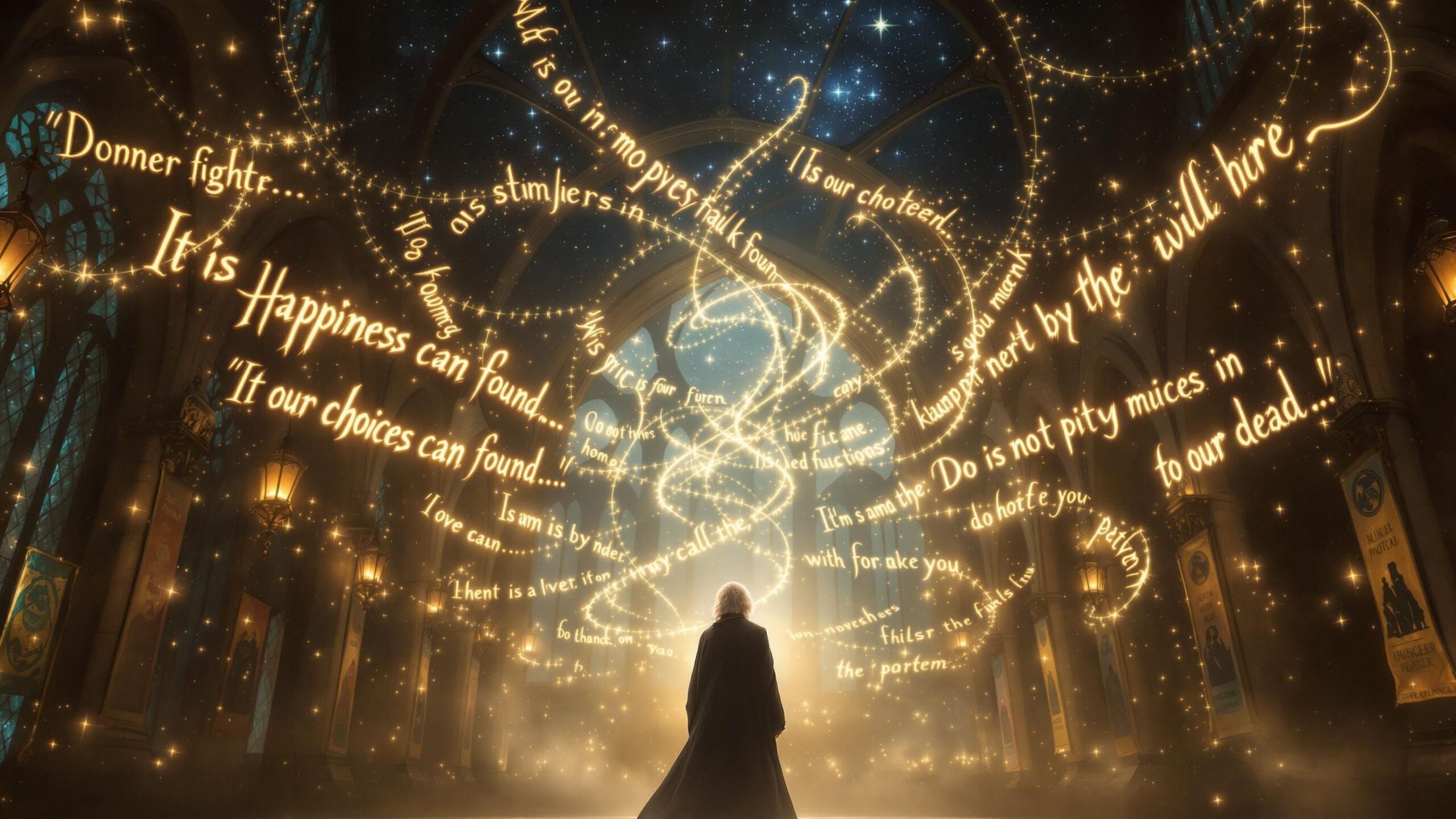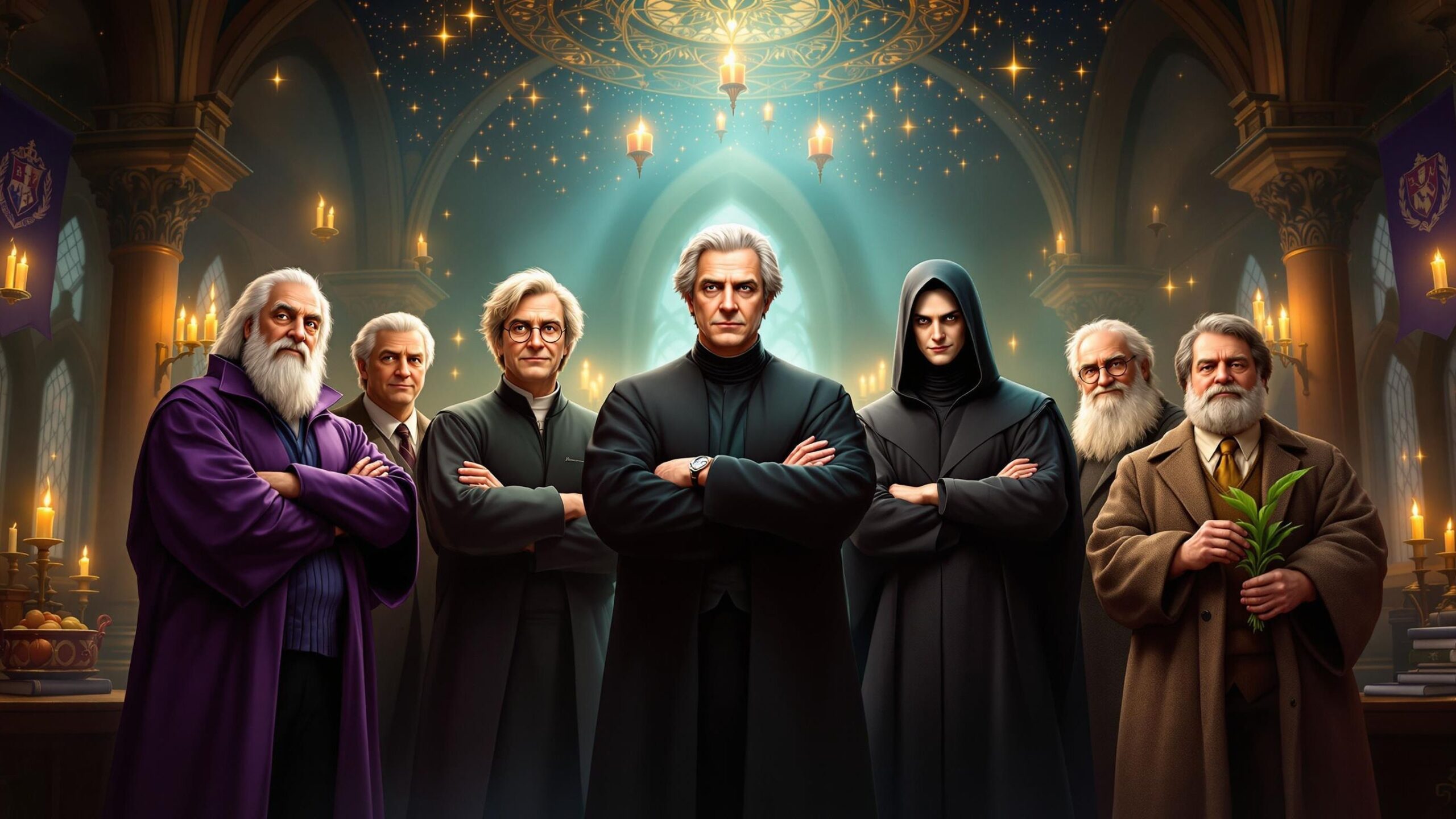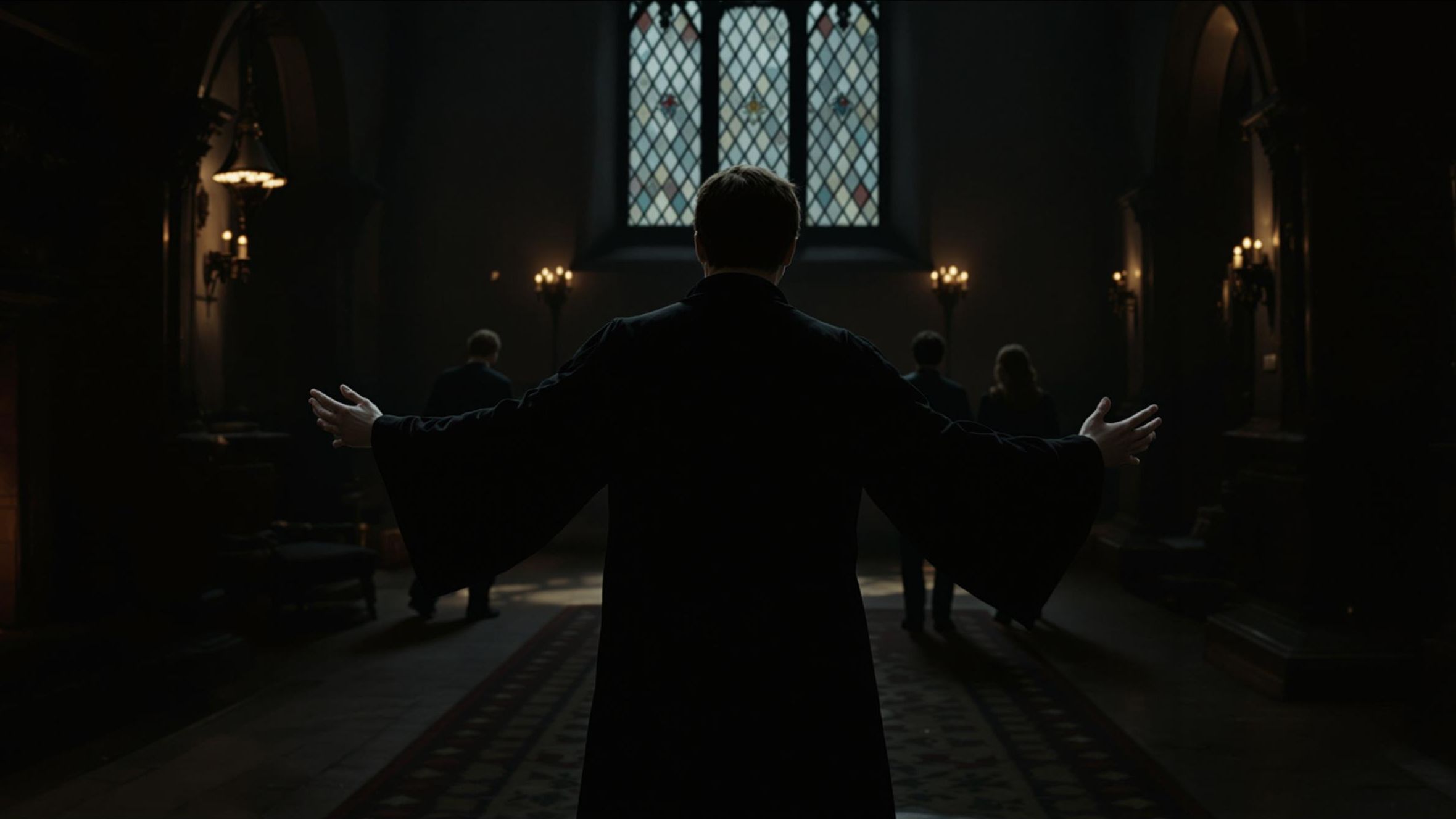Few characters in fiction are as quotable—or as wise—as Albus Dumbledore. The long-bearded, twinkly-eyed headmaster of Hogwarts wasn’t just a powerful wizard—he was a philosopher in robes, a mentor with unmatched insight, and a man whose words often carried as much weight as his spells. Throughout the Harry Potter series, Dumbledore’s dialogue served as more than just plot points; his quotes became life lessons, comforting mantras, and iconic rallying cries. Whether he was offering guidance to a confused Harry, speaking to a room of grieving students, or admitting his own flaws, Dumbledore’s words always struck a chord. His wisdom was born from deep personal mistakes, great triumphs, and even greater losses. Some quotes uplifted, others warned, and a few even haunted readers long after the books closed. From his most heartwarming speeches to his most haunting revelations, these are the top ten Dumbledore quotes that left an indelible mark on fans—and the wizarding world itself.
#10: “It does not do to dwell on dreams and forget to live.”
This line, delivered to Harry in The Philosopher’s Stone, is deceptively simple, yet deeply profound. After Harry spends hours staring into the Mirror of Erised, longing to see his parents again, Dumbledore gently but firmly reminds him of a hard truth: the past cannot be changed, and obsession with what could prevent us from living in the now. The quote speaks volumes about loss, grief, and the human tendency to retreat into fantasy when reality feels unbearable. For a boy like Harry—an orphan surrounded by the shadows of his past—this lesson was crucial. But it resonates far beyond the story. Readers of all ages have clung to this line during moments of longing or regret. Dumbledore doesn’t say that dreams are bad. Rather, he reminds us that they are no substitute for life. In those few words, he strikes a perfect balance between compassion and accountability, urging us to step out of our illusions and fully participate in the world around us.
#9: “Happiness can be found even in the darkest of times, if one only remembers to turn on the light.”
Spoken during The Prisoner of Azkaban film adaptation, this quote is one of Dumbledore’s most beloved—and for good reason. In the context of Dementors patrolling Hogwarts and fear spreading through the castle, this line becomes a beacon of hope. It’s not just about magic; it’s about mindset. Dumbledore acknowledges the darkness—he doesn’t pretend it doesn’t exist—but he offers a way through it: light, both literal and metaphorical. This idea, that happiness isn’t something stumbled upon but remembered, is profoundly empowering. It reminds readers that even in their worst moments, there is agency. There is choice. Whether you’re facing a personal struggle or a global one, Dumbledore’s words encourage resilience. The brilliance of the quote lies in its elegance—it’s simple, relatable, and immensely comforting. No wonder it’s printed on posters, mugs, tattoos, and classroom walls. It’s not just a quote—it’s a philosophy.
#8: “You think the dead we loved ever truly leave us?”
This line from The Prisoner of Azkaban is a masterclass in emotional truth. When Harry is reeling from the loss of his parents and grappling with the presence of his father’s Animagus form during a lifesaving Patronus, Dumbledore offers this gentle yet powerful insight. He doesn’t deny the pain of loss. Instead, he reframes it. The people we love, Dumbledore says, never fully disappear. They influence our choices, live on in our memories, and often guide us from within. This quote is especially poignant given Dumbledore’s own life—his sister Ariana, his mother, his complicated bond with Grindelwald, and eventually the loss of Sirius, Dobby, and so many others. When he speaks these words, he’s not just comforting Harry—he’s speaking from a place of lived truth. For anyone who has lost someone, this quote is a bomb. It reminds us that love isn’t limited to presence. It’s a connection that transcends time, space, and even death.
#7: “We must all face the choice between what is right and what is easy.”
In The Goblet of Fire, after the tragic death of Cedric Diggory and the return of Voldemort, Dumbledore delivers this hard-hitting line. It’s not flowery or poetic—it’s pointed, firm, and morally unflinching. The quote underscores the defining conflict of the series and of life itself: comfort versus conscience. Dumbledore doesn’t sugarcoat the path ahead. He acknowledges that doing the right thing is often the harder road, especially when the wrong choice comes dressed in convenience or fear. This quote stands as a moral compass not just for Harry, but for readers navigating their own real-world dilemmas. It’s a call to bravery—not the kind that charges into battle, but the kind that quietly resists apathy, complicity, and silence. And coming from Dumbledore—a man who himself has chosen wrong before and learned from it—it carries the weight of wisdom earned, not gifted. It’s a quote that doesn’t just inspire—it challenges.
#6: “Do not pity the dead, Harry. Pity the living, and, above all, those who live without love.”
This poignant quote from The Deathly Hallows, delivered in the liminal space between life and death at King’s Cross, is one of Dumbledore’s most emotionally stirring moments. As Harry lies suspended between mortality and what lies beyond, he grapples with the meaning of death, sacrifice, and loss. Dumbledore, ever the guide, offers this insight with soft authority. He reframes death not as the greatest tragedy, but as a natural part of existence—something not to be pitied. Instead, he draws focus to the tragedy of lovelessness, of those who live untouched by the deepest magic of all: love. The line takes on even more meaning considering Voldemort’s arc, a man so afraid of death and so empty of love that he became a hollow shell of humanity. For Harry, and for us, the quote urges compassion. It recognizes that living without connection, empathy, or love is the true curse. It’s not merely a lesson—it’s a lens through which to view the entire series. Dumbledore doesn’t give simple answers; he gives philosophical truths wrapped in kindness. This line, gentle yet haunting, stands as one of his most defining.
#5: “To the well-organized mind, death is but the next great adventure.”
In The Philosopher’s Stone, this early quote is a chilling foreshadowing of the themes to come. Dumbledore speaks these words when explaining why Nicolas Flamel, the creator of the Philosopher’s Stone, has chosen to die with dignity rather than cling to immortality. The line is profound in its calmness—it doesn’t glorify death, but it strips it of terror. For Dumbledore, death isn’t the enemy; fear is. This philosophy would shape Harry’s journey, as he too would have to accept death in order to defeat Voldemort. And coming from Dumbledore—a man who has faced great personal loss and later orchestrated his own death as part of a plan to defeat evil—the quote gains an even deeper resonance. It’s a reminder that fear of death often drives the worst in people, while acceptance can lead to peace. This quote echoes through the series and into real life, offering a hopeful, almost comforting perspective on the inevitable. To the well-organized mind, it’s not an end—but a transformation.
#4: “Words are, in my not-so-humble opinion, our most inexhaustible source of magic.”
One of the final lines Dumbledore delivers in The Deathly Hallows, this quote is a love letter to language itself—and to readers. For a character who shaped so many lives through his words, it’s a fitting summation of his legacy. Dumbledore recognizes that not all magic is cast with wands. Words can inspire, wound, heal, and unite. As he speaks to Harry in the afterlife, Dumbledore reflects on the power of language with quiet reverence. It’s especially meaningful coming from him, a man whose speeches have guided an entire generation of readers. This quote resonates deeply with those who’ve turned to books for comfort, clarity, or strength. In many ways, it breaks the fourth wall—it’s J.K. Rowling speaking through Dumbledore, acknowledging the magic of storytelling itself. It reminds us that we are all wielders of magic when we use our voices for kindness, truth, and courage. Few lines better capture the heart of Dumbledore—or the spirit of the series.
#3: “You are protected, in short, by your ability to love.”
This line from The Half-Blood Prince underscores a theme Dumbledore returns to again and again: love is the ultimate power. When Harry struggles with the weight of prophecy and the burden of being “The Chosen One,” Dumbledore reassures him that it’s not power or skill that sets him apart from Voldemort—it’s his heart. Harry’s capacity to care deeply, to mourn, to feel empathy even for his enemies, is not a weakness. It’s his strength. In this moment, Dumbledore reframes everything. Magic, prophecy, bloodlines—they all pale in comparison to love. It’s a revelation that gives Harry purpose and hope. And for readers, it reinforces the central message of the series: love is not just a feeling—it’s armor. This quote shines particularly brightly in a world where emotional vulnerability is often seen as weakness. Dumbledore, who has made his own mistakes by closing off his heart, speaks from a place of deep understanding. It’s a reminder that power untempered by love leads to destruction—but love, when embraced, makes the impossible possible.
#2: “It is our choices, Harry, that show what we truly are, far more than our abilities.”
Perhaps one of Dumbledore’s most universally beloved quotes, this line from The Chamber of Secrets is both simple and profound. When Harry fears that his connection to Voldemort—his ability to speak Parseltongue, his skill in magic—means he might be destined for darkness, Dumbledore offers this life-altering perspective. It’s not our talents that define us, he says. It’s what we do with them. In this, Dumbledore delivers the series’ most empowering message. Everyone has gifts, flaws, and circumstances beyond their control. But our choices—how we treat others, how we act in difficult moments, how we respond to fear—are what shape our identity. For Harry, it’s a turning point. For readers, it’s a mantra. This quote is now etched into the pop culture lexicon because it speaks to a universal truth. Whether you’re a wizard or not, your actions define your legacy. And as always, Dumbledore doesn’t lecture—he illuminates.
#1: “After all, to the well-organized mind, death is but the next great adventure.”
Though already mentioned earlier in this list, it deserves the top spot for how it frames Dumbledore’s entire philosophy. His approach to life—and death—is fearless, curious, and deeply human. He doesn’t chase immortality like Voldemort, nor does he treat death with dread. Instead, he sees it as a part of the journey—a natural transition. This view shapes how he mentors Harry, how he plans his own passing, and how he confronts every challenge. It’s this very quote that defines why Dumbledore is so wise: because he’s not ruled by fear. He prepares Harry not to survive, but to live—and eventually to accept death with grace. This perspective resonates with readers facing their own struggles, giving them not just comfort but a sense of wonder. It’s no wonder this line is engraved in countless hearts and memorials. It’s the essence of Dumbledore distilled into a single, unforgettable sentence.
Albus Dumbledore’s brilliance wasn’t limited to spellwork or strategy—it lived in his words. He was a man who had seen great darkness, but who believed just as deeply in light. His quotes continue to inspire millions around the world, offering wisdom, comfort, and perspective in moments of doubt. Whether he was guiding Harry through grief, challenging others to act with integrity, or reflecting on his own fallibility, Dumbledore always chose his words with care—and magic. These ten unforgettable quotes reveal the core of who he was: a man who believed in the power of love, the strength of choice, and the unshakable potential of every heart. He may be gone, but his words live on—and in them, so does his magic.




